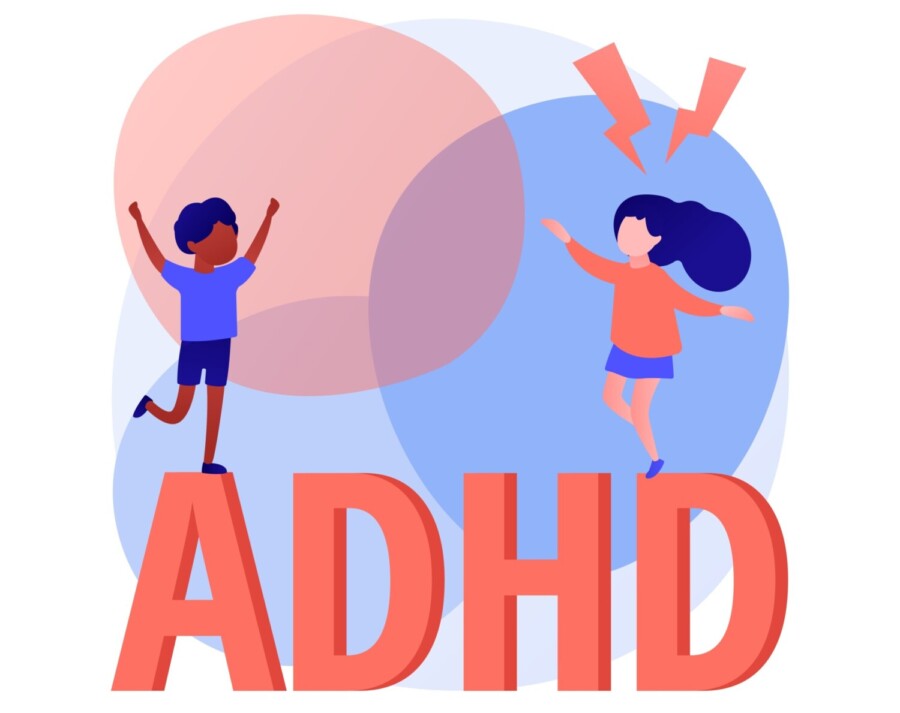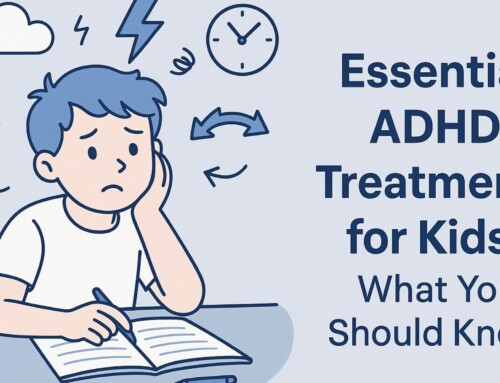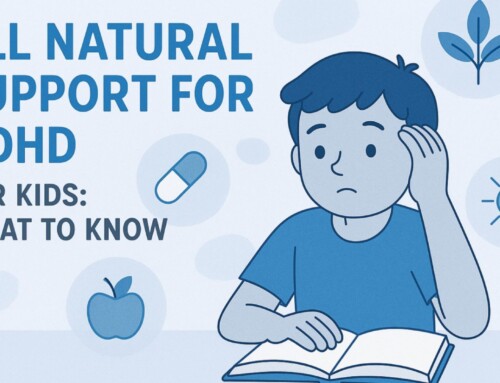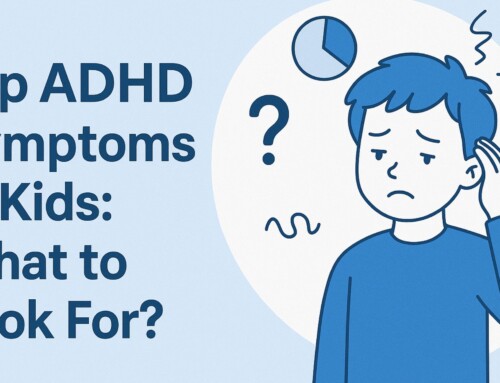Is ADHD A Disability, Or Simply A Different Way Of Thinking?
TL;DR
|
|---|
Yes, ADHD can be considered a disability.
Under U.S. law, including the Americans with Disabilities Act (ADA) and Section 504 of the Rehabilitation Act, ADHD is recognized as a protected disability, but only when it substantially limits major life activities like learning, working, or managing daily tasks.
Clinically, it’s classified as a neurodevelopmental disorder in the DSM-5 (Diagnostic and Statistical Manual of Mental Disorders), the standard used by mental health professionals to diagnose and categorize psychiatric conditions.
But here’s where it gets complicated:
Not everyone with ADHD identifies as having a disability. For some, the symptoms are manageable. For others, they can be profoundly disruptive, affecting school performance, relationships, career stability, and even self-esteem.
This guide breaks down what ADHD is, and isn’t, from a legal, clinical, and real-world perspective.
Is ADHD a Learning Disability?
This is a common point of confusion, so let’s clear it up:
ADHD is not a learning disability.
A learning disability affects how a person processes specific types of information, like reading (dyslexia), math (dyscalculia), or writing (dysgraphia). These are challenges tied directly to academic skills.
ADHD, on the other hand, affects attention, impulse control, memory, and focus. It’s about how the brain manages tasks, not how it learns a particular subject.
That said, ADHD can still have a major impact on learning.
Here’s why:
- People with ADHD may struggle to sit still, stay organized, or follow multi-step instructions
- They may forget assignments, zone out during lessons, or need more time to finish tasks
- This often mimics a learning disability, especially in classroom settings
In many cases, ADHD and learning disabilities co-occur, meaning a person can have both. In fact, as per studies from IDA America, 30–50% of individuals with ADHD also have a specific learning disability.
So while ADHD is not a learning disability, it can make learning harder, and often requires similar school accommodations.
Is ADHD a Developmental, Cognitive, or Mental Disability?
The answer is: a little bit of everything.
And that’s part of what makes ADHD so misunderstood and often misdiagnosed.
ADHD often impacts core executive functions like self-control, working memory, and task switching. As Dr. Edward Hallowell describes it, “ADHD is like having a Ferrari engine for a brain, but with bicycle brakes.” (Source)
Here’s how the classifications break down:
1. Is ADHD a Developmental Disability?
Yes. That’s because it begins in childhood and affects the development of brain systems that control focus, attention, and self-regulation. Like other developmental disorders, ADHD shows up early and shapes how a person interacts with the world over time.
Example: A 7-year-old constantly interrupts class and can’t sit still for five minutes. It’s not defiance, it’s that their brain hasn’t yet developed the ability to filter impulses the way their peers’ brains have.
2. Is ADHD a Mental Disability?
ADHD falls under the umbrella of mental health conditions, since it affects mood, behavior, and executive function. It’s listed in the DSM-5, the official manual used by psychologists and psychiatrists to diagnose mental disorders.
Example: An adult with ADHD feels emotionally overwhelmed by minor frustrations, snapping at a partner, then spiraling into shame minutes later. This isn’t a mood swing; it’s difficulty regulating emotion in the moment.
3. Is ADHD a Cognitive Disability?
People with ADHD often have challenges with:
- Working memory– holding information in mind
- Inhibitory control– pausing before reacting
- Task switching and planning– executive function skills
These are known as cognitive functions, which means ADHD can be considered a cognitive disability when those challenges significantly impact daily functioning.
Example: You know you need to leave for work in 20 minutes, but you’re frozen, unable to decide what to wear, what to eat, or which task to tackle first. Time slips away, and you leave in a panic.
4. Is ADHD a Intellectual Disability?
This is another key distinction:
- Intellectual disabilities involve limitations in both intellectual functioning (IQ) and adaptive behaviors.
- People with ADHD typically have average or above-average intelligence; the issue lies in managing that intelligence consistently and effectively.
Example: A college student with ADHD gets straight A’s on essays written the night before, but misses deadlines regularly and fails classes due to poor time management.
Any of these resonating with you? Start here. Read our blog on 6 Essential Tips for ADHD Support.
What Rights and Protections Do You Have If You Have ADHD?
If you have ADHD and it significantly impacts your daily life, school performance, or ability to work, you may be legally entitled to protections and accommodations; you just need to know your rights.
In the United States, ADHD is recognized as a disability when it interferes with major life activities such as learning, focusing, communicating, or maintaining employment. That means you’re protected under several federal laws designed to promote equal access, not just in theory, but in practice.
1. Americans with Disabilities Act (ADA)
The ADA protects individuals with disabilities, including ADHD, from discrimination in employment, education, public services, and more.
If you qualify, you may be entitled to:
- Adjustments in your work environment
- Modified schedules
- Task management support
- Non-punitive solutions for missed deadlines or attention-based errors
Example: An employee with ADHD may ask for written instructions instead of verbal ones, or permission to wear noise-canceling headphones in a shared office.
2. Section 504 of the Rehabilitation Act
Section 504 is a civil rights law that prevents discrimination in any school or program receiving federal funding. It requires schools to provide reasonable accommodations for students with disabilities, including ADHD.
Common 504 accommodations for students with ADHD include:
- Extended time on tests
- Quiet testing environments
- Breaks between tasks
- Seating near the front of the classroom
- Permission to use organizational tools
3. IEPs and 504 Plans in Schools
For students whose ADHD significantly affects learning or behavior, Individualized Education Programs (IEPs) or 504 Plans outline specific support strategies.
IEPs typically apply when a student qualifies for special education services, while 504 Plans are for students who don’t need full special education but still require help to learn effectively.
Both are legally binding and designed to ensure the student receives equal educational access.
4. Workplace Accommodations
Under the ADA, if your ADHD meets the criteria for a disability, you can request reasonable accommodations at work, meaning changes that help you do your job effectively, without placing an undue burden on your employer.
Examples of ADHD-friendly workplace accommodations:
- A quieter workspace or a remote work option
- Written summaries of meetings or verbal instructions
- Extra time to complete certain tasks
- A flexible schedule with time for breaks or task batching
You do not have to disclose your diagnosis unless you’re requesting accommodations, but if you do, your employer is legally obligated to engage in an “interactive process” to find reasonable solutions.
How to Talk to Your Doctor or Employer About ADHD?
If you suspect ADHD is affecting your life, but don’t have a formal diagnosis, it can feel intimidating to bring it up. Many adults carry years of self-doubt or shame, believing their struggles are personal failings rather than signs of a treatable, support-worthy condition.
But here’s the truth: You have every right to seek clarity and support.
Whether you’re talking to your doctor about a diagnosis or your employer about accommodations, the way you frame your experience can make a big difference.
1. Talk About Function, Not Just Focus
Instead of saying “I’m bad at concentrating,” try:
- “I often struggle with executive tasks like organizing and prioritizing.”
- “I lose focus quickly, even on tasks I care about, and it affects my performance.”
- “I start projects easily but find it hard to finish without external structure.”
These are not character flaws, they’re hallmark symptoms of ADHD.
2. Use Key Terms That Are Clinically Recognized
When speaking with a healthcare provider or HR rep, using accurate language helps legitimize your concerns. Helpful terms include:
- Executive dysfunction
- Working memory challenges
- Time blindness
- Impulse control issues
- Need for reasonable accommodations under the ADA
3. Documentation That Helps
When meeting with a medical provider or requesting accommodations, bring:
- A personal symptom log (real-life examples of how ADHD affects your functioning)
- Past academic or employment records showing patterns of struggle
- Any previous mental health evaluations
- Family history of ADHD or related conditions (if applicable)
Even if you weren’t diagnosed in childhood, these pieces help paint a fuller picture of your needs, and open the door to real solutions.
4. If You’re Navigating ADHD as an Undiagnosed Adult
You’re not alone. Many adults were missed as kids, especially if they weren’t “disruptive” or hypersensitive. But adult ADHD is just as valid, and it deserves support.
Whether it’s struggling with deadlines, emotional overwhelm, missed promotions, or burnout from overcompensating, there’s help available. And you don’t have to figure it out alone.
That’s exactly what we specialize in at Total Life Counseling.
Support That Goes Beyond the Session- At Total Life Counselling
ADHD doesn’t just affect your focus; it impacts your entire day, from how you manage time to how you regulate emotions, handle relationships, and get through a work or school routine. That’s why at Total Life Counseling, therapy isn’t just talk, it’s practical, action-oriented support.
Our ADHD-trained therapists use evidence-based approaches like CBT, ARTT, and behavior coaching to help you (or your child) build real-world strategies that actually work. That means:
- Tools to improve organization, focus, and emotional control
- Support for routines at home, school, or work
- Coaching techniques that involve the whole family when needed
- A holistic lens that considers emotional, physical, and even spiritual well-being
You won’t leave with vague advice. You’ll leave each session with a personalized plan, rooted in what’s going on in your life right now, and what’s needed to make daily challenges feel more manageable.
Schedule a free 15-minute consultation to see how we can help you or your child build clarity, structure, and confidence, one practical step at a time.
Conclusion
Recognized by the American Psychiatric Association as a neurodevelopmental disorder and listed in the DSM-5, Attention-Deficit/Hyperactivity Disorder (ADHD) is far more than occasional distraction or restlessness. It’s a medically recognized condition that affects how the brain regulates focus, attention, emotion, and behavior.
In many cases, ADHD qualifies for protections under laws like the Americans with Disabilities Act (ADA), the Individuals with Disabilities Education Act (IDEA), and Section 504, especially when symptoms interfere with a person’s ability to work, learn, or manage daily life.
And while it may not be a visible disability, ADHD can have a very real impact on a person’s quality of life, especially without diagnosis or support.
Frequently Asked Questions
1. Is ADHD considered a disability under the law still?
Yes. Under the ADA and Section 504, ADHD is considered a disability when it significantly impairs a person’s ability to perform daily tasks or substantial gainful activity, especially in school or the workplace.
2. Is ADHD a disability or mental illness?
ADHD is classified as a neurodevelopmental disorder, but in legal and educational contexts, it is treated as a mental disability. So, it can be both a disorder and a disability, depending on the lens.
3. Is ADHD a permanent disability?
ADHD is generally considered a lifelong condition, although symptoms and coping strategies can improve with treatment. So yes, it is often seen as a permanent disability, but not an unchangeable one.
4. Can I get disability benefits for ADHD?
Possibly. The Social Security Administration (SSA) offers disability benefits for ADHD if you (or your child) meet strict eligibility criteria. This typically includes documented ADHD diagnosis, functional limitations, and proof that symptoms prevent you from maintaining substantial gainful activity. Children may qualify for Supplemental Security Income (SSI); adults may apply for Social Security Disability Insurance (SSDI).
5. What are common ADHD symptoms that may qualify for support?
Examples include difficulty focusing for long periods of time, poor impulse control, frequent task switching, chronic disorganization, symptoms of hyperactivity or inattentiveness that disrupt school, work, or relationships. These symptoms can qualify a person for classroom accommodations, workplace adjustments, and in some cases, federal benefits.
6. Is ADHD a disorder or disability in children?
Attention-Deficit/Hyperactivity Disorder (ADHD) is diagnosed as a disorder, but it can be considered a disability if it impacts a child’s ability to function. With proper ADHD treatment, children can meet strict requirements for support during early child development.
Filed in: ADHD, Blog, Gemima McMahon
Share This Story, Choose Your Platform!
Total Life Counseling Center consists of Licensed Counselors, masters level therapists, Español counselors, Licensed Mental Health Counselors, business coaches, and image enhancement coaches who provide counseling for emotional, mental, physical and spiritual care including marriage, individual, family, substance abuse and more. TLC’s family, trauma and marriage experts have been interviewed on National and Local TV/Radio over 200 times for their expert advice on Fox News, OWN, WETV, ABC’s Medical Minute and more. Our skilled counselors are relational, approachable and specialists providing therapy services in the Central Florida area including: Orlando, Winter Park, MetroWest, Windermere, Dr. Phillips, East Orlando, Lake Mary, and Clermont, Boca Raton Florida, and Dallas, TX.






